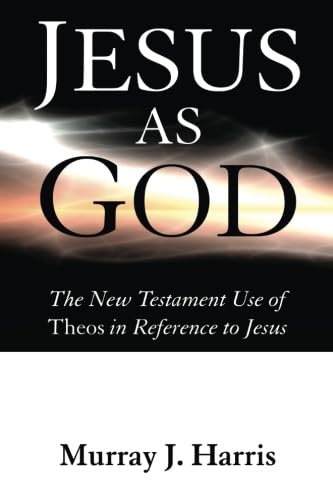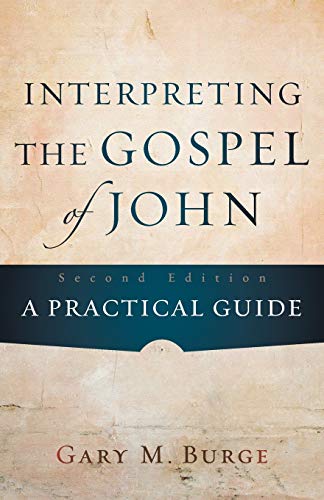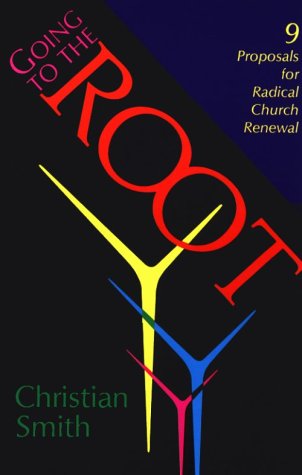Volume 19 - Issue 1
Personally Speaking: Faith and Scholarship
By I. Howard MarshallMaybe I was a coward when I commenced my theological studies. I took the precaution of going to a fairly conservative institution so that I would not have to face any all-out attack on my beliefs that might be too strong for me. I survived, though whether this was due to innate stubbornness, refusal to face facts, and sheer conservatism I don’t know. I certainly discovered various interesting things. I found that I often got far more stimulus from the people whom I was likely to disagree with (I think especially of Paul Tillich’s Systematic Theology) than from stolid ‘sound’ thinkers (whom I had better leave in tactful anonymity). There were times when I did not know the answers to attacks on the faith, but then I knew that there were people who had faced similar problems and had not felt compelled to succumb, and I felt that if they could stand firm, then so could I.
The threats to belief came on two levels. On the one level, there were the attacks on Christianity as such, sometimes direct and sometimes indirect. On the other, there were the attacks on the particular form of Christianity which I accepted. The latter, of course, seemed the more dangerous because they often came from Christians who might be presumed to know what was viable Christian belief and what wasn’t.
I think I came to realize that whatever Christian position I adopted must be capable of rational defence; in other words, that it must be possible to produce reasons for one’s position and counter-arguments against objections. I suppose, therefore, that I was not embracing what would nowadays be called a ‘fundamentalist’ view. (In those days the word ‘fundamentalist’ was used pretty much as an equivalent to ‘conservative evangelical’; while it could be used as a term of abuse by opponents, it had not, on the whole, acquired some of its present associations, when it is used to tar evangelicals generally with the mindless extremism of certain types or group, both Christian and non-Christian.) Rather, I believed that the position I held was reasonable and defensible by reason. And therefore my theological heroes were the people who produced scholarly cases for their views.
To be sure, there must be a point where faith comes into the picture. In the last analysis, our claim that there is a God who raised Jesus from the dead may well be a matter of faith where final proof is impossible, and it is a faith that accepts that there will be mystery and paradox that is not always amenable to rational explanation. But within the self-reflection and self-criticism of faith there must be some coherence. And within the general area of biblical and theological study there are many areas where decisions rest on evidence and reasoning and general probability rather than on leaps of faith. Consequently, I came to believe firmly in the appeal to history and historical investigation.
Inevitably, a person’s knowledge and beliefs change in the course of time. The doctrinal basis of UCCF is still an accurate description of my theological beliefs and their practical focus, even though the original eight points have somehow been supplemented by further propositions dropped from heaven, and even though my detailed understanding of some of them may be somewhat changed from what it was. But I hope that my views have changed for the better, simply in the sense that I have acquired more and better knowledge. (They may also have changed for the worse because I probably forget more and more and become less sharp as the years go by.)
But now, what about my present situation, facing students who have the same problems as I have described in my own case? There is a familiar malady known in the church as ‘losing the fire’. It is said to afflict theological students as they face the onslaught of teaching in college or university, and it has the effect of changing the enthusiastic, sound student who entered the course into a somewhat useless and uncertain being at the end of it. The disease certainly exists, because I have seen examples of it. Its existence is worrying, because I am one of the teachers who may be responsible for spreading it. What am I to do to avoid poisoning my patients? And how can I cure the sufferers?
I am inevitably cast in two roles. On the one hand, I have a clear duty as an academic teacher to present sound learning to students, of whatever persuasion they may be. Therefore, I have to give ‘state of the art’ instruction and acquaint people with problems. Part of my task is to provide information and knowledge—or at least instruct people in where and how to find it. Another part is to teach them to think things out for themselves and to develop critical minds, able to argue a case and to answer objections. I hold that it is not my duty to tell people what to believe or think but rather to teach them how to think out their own beliefs. Unconsciously, I probably can’t avoid giving strong hints where I think the truth is to be round—and even consciously I inevitably do this on occasion, there being times when it is right and proper to do so. I sometimes say that I hope people will share my views (after all, I believe them to be right!), but I want them to do so because they have thought out the matter for themselves and come to share them and not because they accept anything on my say-so; if people don’t come to share them, then it is time that I asked myself whether they are not in need of revision. So there is a sense in which I do not wish people to go about saying that something must be right because Howard Marshall says it is.
And yet, on the other hand, it does count for something that a person has investigated a problem at a depth which students have not had the opportunity to do and come to certain conclusions which can be shared with other people. There has to be a certain respect for people who have a right to voice an opinion, and I for my part pay far more attention to what some people say because I respect their scholarship, and much less to others whose opinions are not worth having. We cannot avoid taking some things on authority—but always on condition that there is something provisional about this and that the last word lies with truth itself.
In this way, I hope that I help people who share my general point of view to see that it is defensible and worth upholding, and may also do something to persuade other people with differing views to take mine seriously. I hope too that I direct attention in my teaching to those areas which are profitable and useful and not sterile and barren.
Further, I do not think that it is proper or possible to have a split mind, so that I say one kind or thing in the classroom and another in a church setting. There must be consistency; I cannot throw away my faith in the university, and, equally, I cannot abandon my scholarship in preparing for the pulpit. Rather, in all my life my faith must be honestly held and open to criticism, both self-criticism and criticism from outside. Recently I heard a remark by Dr David Hubbard of Fuller Theological Seminary to the effect that we are not scholars who happen to be Christians but Christians who happen to be scholars; it made me do some self-criticism.
And finally, while I hold firmly to my understanding of the faith, I recognize that there are other, fully committed Christians both to my right and to my left who do not see eye to eye with me. I think I have grown more tolerant of them over the years, I recognize more clearly that they have genuine Christian experience and insights to share with me, and I can enjoy fellowship with them.
There, then, is something of my personal attitude. Is it helpful to students who face the challenge of theological study or does it mean that the syndrome is already affecting me and that I am now beyond cure? I leave the answer to the reader!
I. Howard Marshall
I. Howard Marshall
University of Aberdeen
Aberdeen, Scotland, UK






